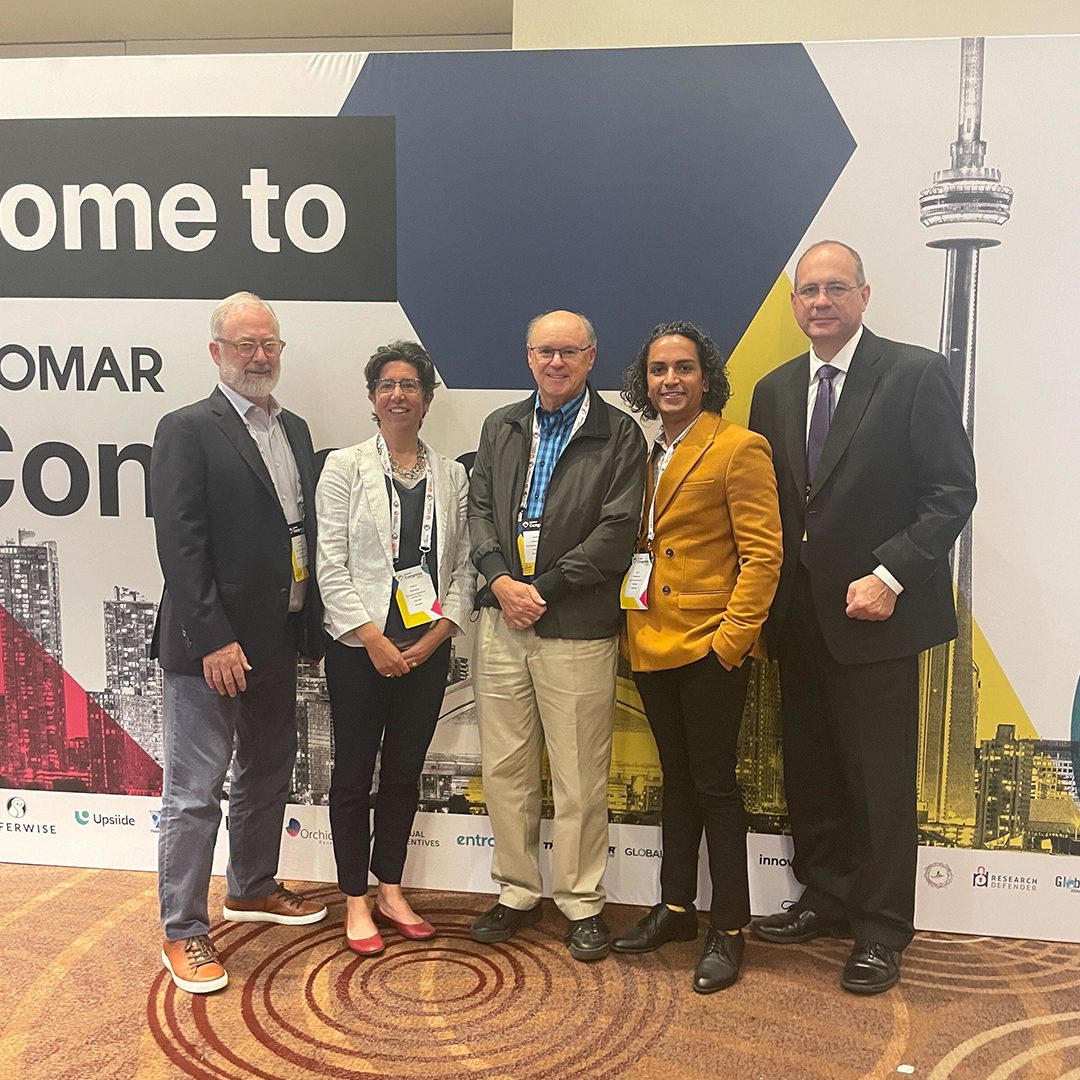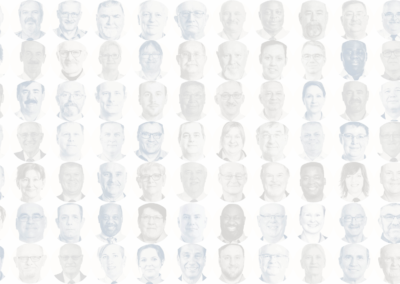Reflections on ESOMAR 2022
ARTICLE BY Vijay Wadhawan
The last three days have been so energizing as I attended the 75th Annual ESOMAR conference, originally scheduled for 2020, but rescheduled due to COVID-19. The conference was a reminder that, while many things can be done online, there’s something magical about in-person events – especially when it comes to sharing big ideas, and meeting and learning from new colleagues. And, most importantly, I think that being there in person kept me present in the sessions, ensuring I was able to get the most benefit from the conference.
This year’s conference theme was “What If…?” – which was so appropriate given the times we’re living in. It also served as a reminder that, as we discover what our “new normal” looks like, the simple question “What if?” can create a flood of ideas on new ways to approach our lives. This includes how the market research industry evolves to conduct more meaningful and insightful research.
The conference was kicked off by an energetic and inspiring keynote by Jeremy Gutsche from Trend Hunters, who showed us that, while things in our world may seem chaotic right now, there are so many opportunities available to us if we immerse ourselves in the chaos, ask smart questions and ensure we aim not to just predict what will happen in our new reality, but what may be pushing these changes in our world.
While I took away many lessons from the conference, there are three I want to highlight, specifically for the healthcare sector as our industry and environments change rapidly.
Use research to build empathy
Since healthcare is such a complex space – and it can seem an impossible task to provide solutions that meet the needs of every individual stakeholder – we often have a desire to reach for simple answers or find the lowest common denominator to address complex situations. In healthcare, there are no simple answers (which, in my opinion, makes this an exciting space to work in). But, in our effort to find simple answers, we can forget that healthcare at its core is a truly human business – which means it’s nuanced and messy. If we truly want to build a human-centric approach to healthcare, we need to look beyond demographics, behaviours and attitudes to understand people at their core. This curiosity and effort to build more empathy through research may seem ‘frivolous’ or ‘not urgent’ given the current state of the healthcare system, but it is my belief that doing the work now to have a better understanding of stakeholders, as people first, will provide a future-focused insights foundation that can be used to build a more inclusive and equitable healthcare environment for all.
Use research to fail
“Failure” is a word that has such a negative connotation in our world – and we forget that, through failure, there are many lessons to be learned. I was reminded at multiple points during the conference that humans do not think rationally, nor are they particularly good at knowing what they want or what they’ll do in the future. Thoughtful research that asks deep questions, challenges our thinking and is built with an objective that goes beyond measuring specific metrics will allow us to use research to fail on a smaller scale, elevate the learnings and innovate with purpose.
Ask fewer questions
This may sound counterintuitive coming from someone who sells research, but in healthcare (and in other spaces), we’re often asking questions that we already know the answers to. We’re entering a phase in the industry where potential research participants have less time and attention to offer us. Asking fewer, but more meaningful, questions allows us to ensure that the insights we gain are thoughtful; helps us expand our understanding of stakeholders; and provides opportunities to open up space that is critical to building and providing healthcare solutions that meet the moment we’re in. Trust in market research is low right now, and participants want to know how their thoughts and opinions will be fed back into the healthcare space. We must challenge ourselves to do research that is seen as meaningful, and demonstrate how this research will ultimately be the starting point for great healthcare innovation.

I look forward to taking some of the learnings I’ve gained over the last few days and finding ways to implement them with clients that are passionate about digging deeper into the data we gather to uncover opportunities and continue to challenge our long-held beliefs as this world rapidly changes.
Find out how our Health and Wellness team can help your organization
Related insights



Toronto
366 Adelaide Street West
Suite 101, Toronto, ON
Canada M5V 1R9
416 920 9010
Ottawa
116 Albert St
Suite 300, Ottawa, ON
Canada K1P 5G3
613 230 5089
Calgary
421 7th Ave SW
Suite 3000, Calgary, AB
Canada T2P 4K9
403 613 5735
